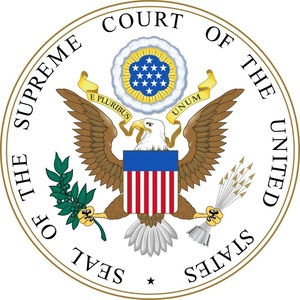Supreme Court takes up SRE case

October 21, 2024
BY Erin Voegele
The U.S. Supreme Court on Oct. 21 granted a petition to review the U.S. Court of Appeals for the Fifth Circuit’s November 2023 decision related to the administration of small refinery exemptions (SREs) under the Renewable Fuel Standard.
The U.S. EPA in April 2022 denied 36 SREs that had been filed under the RFS. The agency in June 2022 denied an additional 69 additional SRE petitions. Those SRE petitions had been filed by 36 small refineries located in 18 states.
Advertisement
Numerous refineries challenged the denials in the Third, Fifth, Seventh, Ninth, Tenth, Eleventh, and D.C. Circuit Courts. All regional circuits except the Fifth Circuit concluded that only the D.C. Circuit was the proper venue to hear the challenges and either dismissed or transferred the challenges to the D.C. Circuit. The Fifth Circuit Court, however, denied EPA’s request to transfer the challenges to the D.C. Circuit court, holding that the SRE denials were “locally or regionally applicable” rather than “national applicable.” The Fifth Circuit Court proceeded with the challenges and in November 2023 ruled in favor of the small refineries, remanding six SRE petitions to the EPA for reconsideration. Biofuel groups submitted requests for rehearings with the court, which were ultimately denied.
Growth Energy and the Renewable Fuels Association in May 2024 jointly petitioned the Supreme Court to overturn the Fifth Circuit’s decision. In their petition, Growth Energy and RFA argued that challenges to those denials should be adjudicated solely in the U.S. Court of Appeals for the D.C. Circuit, not in regional circuits like the Fifth, which only covers Louisiana, Mississippi, and Texas. In contrast to all other U.S. Courts of Appeals that evaluated this venue issue, the Fifth Circuit concluded that it was the proper venue to hear and rule on these challenges, despite the fact that EPA’s SRE policy is “nationally applicable” and “based on a determination of nationwide scope or effect.”
The Supreme Court on Oct. 21 announced it will take up the case.
Advertisement
“The Fifth Circuit was clearly an improper venue to hear challenges on small refinery exemptions (SREs),” said Growth Energy and the RFA in a joint statement. “Because the Fifth Circuit opinion set up a clear split with several other Circuit courts on the question of venue, this is precisely the sort of issue that the Supreme Court is meant to resolve. The Court has agreed, and we look forward to participating in the case and having this issue settled once and for all.
“The refining community’s abuse of small refinery exemptions destroys demand for biofuels nationwide, which negatively impacts farmers and bioethanol producers regardless of where they operate,” they continued. “The economic and environmental impact of this abuse does not recognize state lines. The decision in this case should strengthen the RFS by giving biofuel producers and their farm partners the certainty they deserve.”
Related Stories
More than 1.76 billion renewable identification numbers (RINs) were generated under the Renewable Fuel Standard in January, down from 1.91 billion generated during the same period of 2024, according to data released by the U.S. EPA on Feb. 20.
The U.S. EPA on Feb. 20 released updated small refinery exemption (SRE) data showing that 13 previously denied SRE petitions for Renewable Fuel Standard compliance years 2021 and 2022 are being reconsidered. No new SRE petitions were filed.
A coalition of biofuel, agriculture, fuel retailer and petroleum trade groups on Feb. 19 sent a letter to U.S. EPA Administrator Lee Zeldin urging the agency to set robust, timely, multiyear RFS RVOs for 2026 and beyond.
CVR pauses development of potential SAF projects pending regulatory, tax credit clarity
CVR Energy Inc. released fourth quarter financial results on Feb. 18, reporting reduced renewable diesel production. The company also said it is pausing development of SAF capacity pending clarity on government subsidies.
CARB on Feb. 18 announced that amendments to its LCFS program that were approved in November 2024 have been put on hold following the California Office of Administrative Law’s decision to disapprove the amendments due to clarity issues.
Upcoming Events










